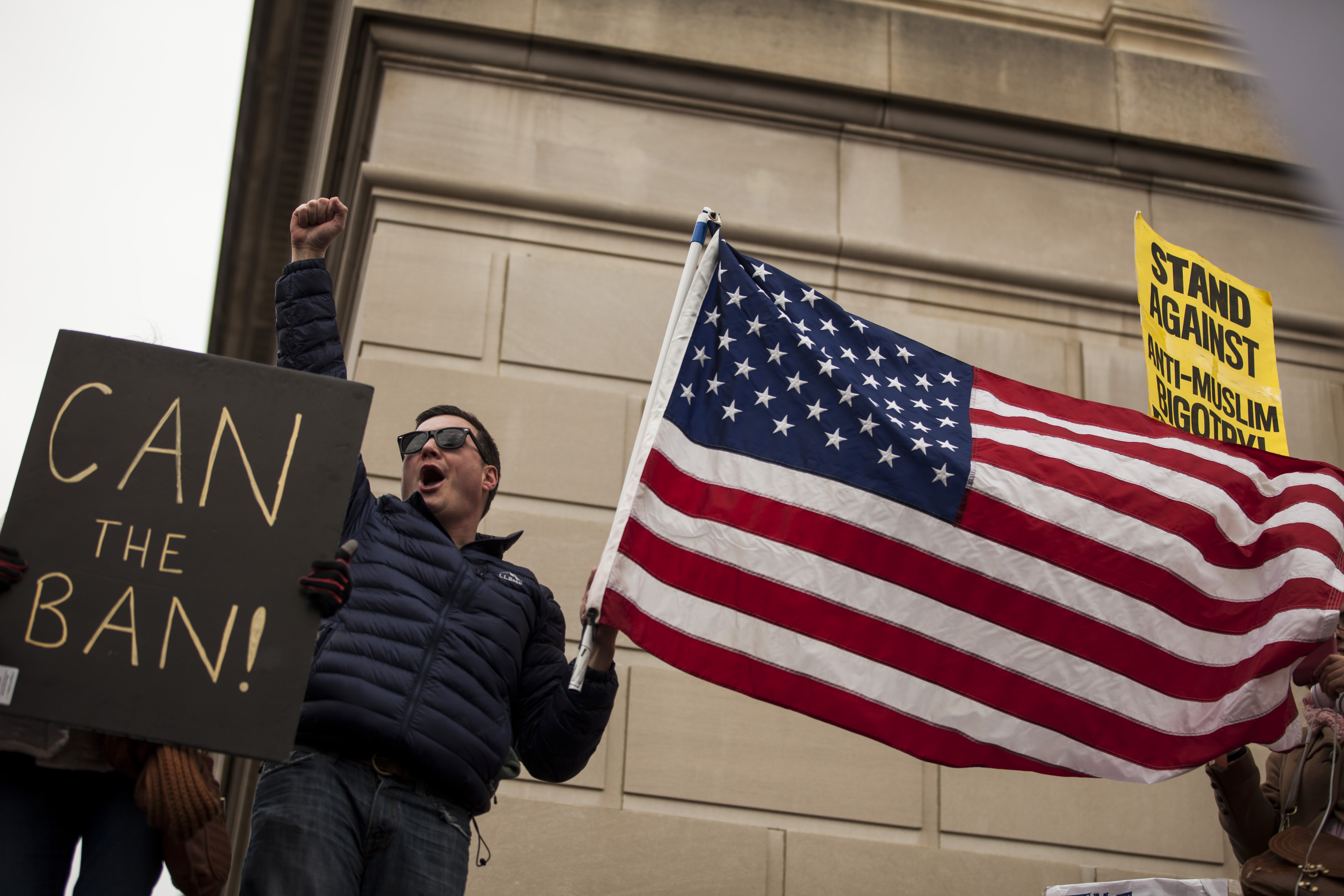Today (March 6) the Trump Administration revoked the January 27 executive order colloquially known as "the Muslim ban" and replaced it with a similar one. The original order, which prevented people from seven Muslim-majority nations to travel to the United States for 90 days and suspended the refugee admissions program for 120 days, led to widespread confusion and protests at airports and a series of legal challenges which culminated in a nationwide stay on implementation.
The new order, which will take effect on March 16, 2017, retains the overall framework of the January 2017 order. It still argues for more stringent screening and vetting protocols in the visa-issuance process and the refugee admissions program in order to "protect United States citizens from terrorist attacks, including those committed by foreign nationals." People from Iran, Libya, Somalia, Sudan, Syria and Yemen—nations characterized as state sponsors of terrorism—will not be able to travel to the United States for 90 days from when the order takes effect. Iraq has been removed from the list because of its "close cooperative relationship" with the United States, according to the executive order.
In response to the first Muslim ban, stories abounded about how green card holders, students enrolled in universities and young children seeking medical care were unable to travel to the United States. Today’s executive order is narrower, perhaps in response to news coverage, on-the-ground resistance and legal challenges. The new order includes case-by-case waivers for people alleging "undue hardship" if they cannot travel to the United States for study, medical care or business reasons among others. In addition, the order does not apply to green-card holders, people with asylum or refugee status, dual nationals or anyone holding a current valid visa for travel. In terms of refugee admissions, the original ban had suspended the Syrian refugee admissions process indefinitely and other refugee admissions for 120 days. Now, all refugee admissions, including for Syrians, will be paused for 120 days.
Today’s order emphasizes that the original policy did not "provide a basis for discriminating for or against members of any particular religion." Civil, immigrant and refugee rights organizations disagree. They point out that an edited or scaled-back version of the original executive order cannot change its discriminatory intent or impact."This is part of the Administration’s ongoing attack on immigrants. Editing the order cannot change past rhetoric or intent. The new order still bans Arabs and Muslims from six countries," says Abed Ayoub, national legal and policy director of the American-Arab Anti-Discrimination Committee.
Jamal Abdi, policy director of the National Iranian American Council, believes that the sorts of separations that occurred under the original ban will continue. "Iranian-Americans who were politically active in Iran can’t return for fear of Iran’s government detaining them, and now their families can’t visit them here in America because of our own government’s policy. Grandparents won’t be able to meet their grandchildren. And there are countless Iranian students who could be the founder of the next Google or eBay here who will take their talents elsewhere."
Today’s executive order also retains the original ban’s provisions around the collection and public sharing of databases with information about foreign nationals who "are radicalized after entry into the United States and who have engaged in terrorism-related acts," as well those who have committed gender-based violence and "honor killings."
In addition, the new order indicates that the secretary of state, the attorney general, the secretary of Homeland Security and the director of National Intelligence will develop and implement a program that will identify people who "support terrorism, violent extremism, acts of violence toward any group or class of people within the United States." It is unclear what the basis and criteria for such a program would be.
The revised executive order will likely lead to legal challenges, according to Shoba Sivaprasad Wadhia, clinical professor of law and director of the Center for Immigrants’ Rights Clinic at Penn State Law School. "The new version suffers from the same legal flaws as the first—excluding refugees and immigrants from Muslim majority countries without a rational basis or respect for the rule of law."
